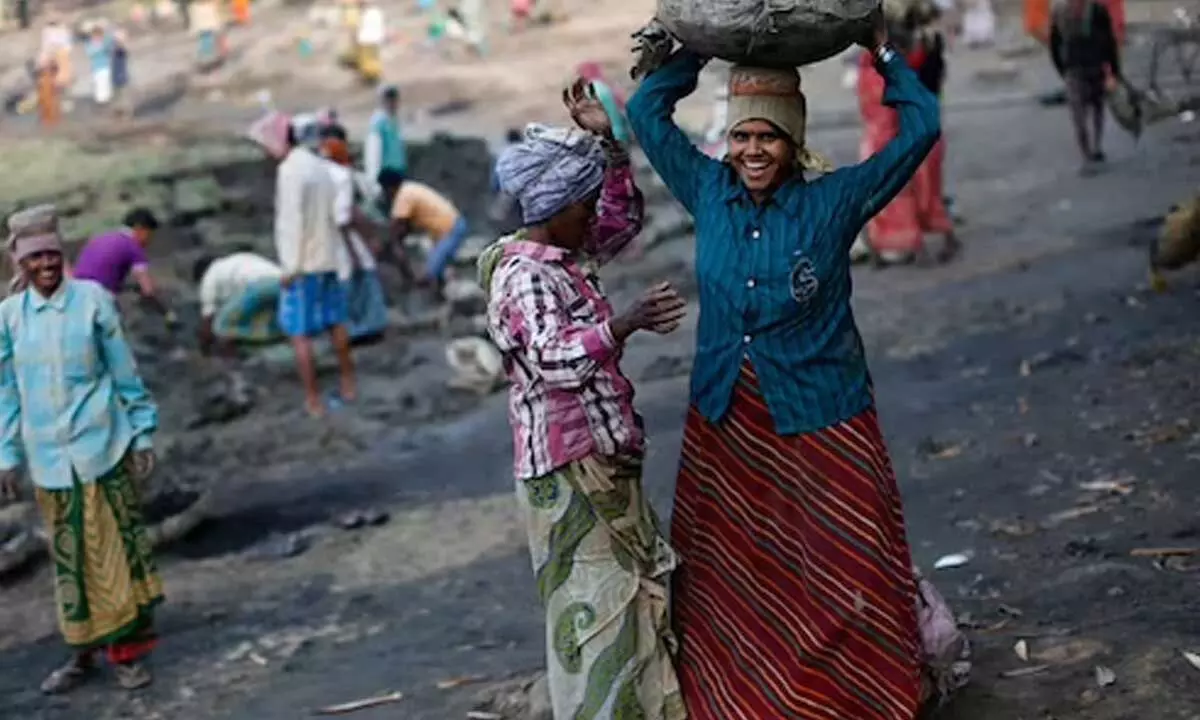Live
- Odisha BJP chief to be elected in January
- AP Home Minister Anitha alerts officials amid rains in heavy Rains in Tirupati
- Taluk Guarantee panel
- Uber Launches Uber Moto Women for Safer and Flexible Rides in Bengaluru
- ‘Fear’ pre-release event creates waves
- Champions Trophy 2025 Host Change? Indian Broadcaster's Promo Sparks Controversy
- Nabha Natesh introduced as Sundara Valli from ‘Swayambhu’
- Aamir Khan praises Upendra's ‘UI: The Movie’ ahead of its release
- Celebrations: Keerthy Suresh ties the knot with Antony Thattil
- Indian scientists develop flexible near-infrared devices for wearable sensors
Just In
Covid-19 pandemic underscores role of MGNREGA as a safety net despite shortcomings, study shows


Covid-19 pandemic underscores role of MGNREGA as a safety net despite shortcomings, study shows
About 39 percent of all jobcard-holding households interested in working under the Mahatma Gandhi National Rural Employment Guarantee Act 2005 did not get a single day of work in the Covid year of 2020-21
Bengaluru: About 39 percent of all jobcard-holding households interested in working under the Mahatma Gandhi National Rural Employment Guarantee Act 2005 did not get a single day of work in the Covid year of 2020-21. Also, on average, only 36 percent of households that worked received their wages in 15 days, showed a survey of 2,000 households across eight blocks in four states conducted by Azim Premji University in partnership with the National Consortium of Civil Society Organisations on NREGA and Collaborative Research and Dissemination (CORD).
Despite these shortcomings, the study found that MGNREGA made a marked difference during the pandemic, protecting the most vulnerable households from significant loss of income. Increased earnings from MGNREGA were able to compensate for somewhere between 20 to 80 percent of income loss depending on the block.
The survey was conducted in November-December 2021 in the following blocks: Phulparas (Madhubani) and Chhatapur (Supaul) in Bihar, Bidar (Bidar) and Devadurga (Raichur) in Karnataka, Khalwa (Khandwa) and Ghatigaon (Gwalior) in Madhya Pradesh, and Wardha (Wardha) and Surgana (Nashik) in Maharashtra. The sampling method of the study ensures that findings are representative of all job-card holding households in the block.
"Our study shows how much the workers value the need and utility of MGNREGA. More than 8 out of 10 households recommended that MGNREGA should provide 100 days of employment per person per year. We also find a massive extent of underfunding. A conservative estimate yields that the allocations in the surveyed blocks should have been three times the amount that was actually allocated in the year after lockdown to fulfill the true extent of work demand," noted Rajendran Narayanan, co-author of the study and faculty member at Azim Premji University.
The NREGA Consortium, Ashwini Kulkarni said, "One of the objectives of MGNREGA is as a social protection measure during distress times. Covid Pandemic, lockdown created unprecedented distress and MGNREGA, as expected, rose to the need and provided work for many more villages and many more households than in the preceding years. MGNREGA's role for reducing vulnerability has been reemphasized and continues to be of vital importance in post-pandemic times. We as Civil Society Organizations have the responsibility to convey voices of the people to the policy makers to fine tune the implementation process, this report is an effort in this regard."

© 2024 Hyderabad Media House Limited/The Hans India. All rights reserved. Powered by hocalwire.com






